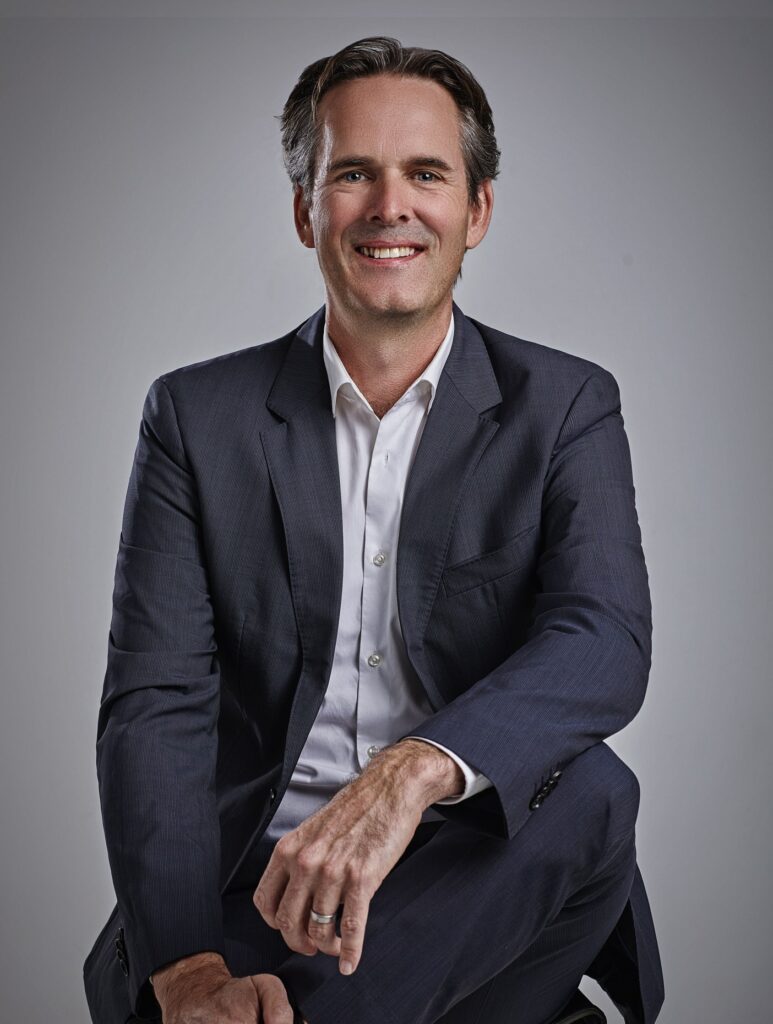Anton Eser, CIO of 10X Investments, based on discussions at a recent 10X Media Lunch in Cape Town.

When I returned to South Africa during the early days of COVID, I did not anticipate how transformative the move would be—not just for me personally but also in terms of my perspective on the investment landscape.
After spending years in the UK asset management industry, particularly at LGIM (Legal & General Investment Management), I saw firsthand the shifts happening globally—particularly in the battle between active and passive investing. Now, at 10X Investments, I see many of the same dynamics playing out, albeit in a uniquely South African way.
The real battle was never about Alpha – For years, the conversation in asset management revolved around active vs. passive investing, with active managers trying to prove their ability to generate alpha (returns above the market). But the real transformation in global investment management was not just about whether active could outperform passive—it was about how asset managers could better serve their clients through outcome-oriented solutions.
Big global players like BlackRock, Vanguard, and State Street thrived because they understood this. They did not just push active funds or index strategies; instead, they provided clients with tools to build portfolios aligned with specific goals. BlackRock, for example, developed Aladdin, a risk management platform that enabled institutions to better structure their investments. In the institutional market, solutions like liability-driven investing (LDI) and outcome-based strategies became dominant.
Traditional active asset managers, however, struggled to adapt. Their businesses were structured around stock picking and beating benchmarks—not around solving client problems. This was a fundamental issue because investors, whether institutional or retail, are not just looking for outperformance in isolation. They are looking for strategies that help them achieve their long-term financial goals.

Unlock your practice potential.
Optimise your Business, Improve Workflow & Drive Profitability.
ELEVATE YOUR PRACTICE WITH FSPHUB
South Africa’s unique market dynamics – Every market has its own structure. In the UK and US, the defined benefit (DB) pension schemes still hold significant assets, even as they gradually transition to defined contribution (DC) models. South Africa, however, shifted to a DC system over 20 years ago, meaning that most retirement savings are already in individual accounts rather than pooled DB schemes. This presents a different challenge: how do we optimise retirement outcomes for individuals rather than institutions?
Globally, asset growth has increasingly come from solutions-based investing, where asset managers provide customised portfolios that cater to specific objectives. Whether it is a discretionary fund manager (DFM), a multi-manager, or a retail investor, the demand for tailored, problem-solving investment approaches is growing.
Why Index Strategies and Alternatives are key – One of the biggest misconceptions in investment management is that passive index investing is a standalone strategy. In reality, it is simply a cost-effective building block within a broader portfolio. Index investing is a commodity—it provides market exposure at low cost. The real value comes from knowing when and how to use it in combination with other strategies.
This is where alternatives, such as private credit and private equity, come into play. You can’t replicate these asset classes through an index; they require active management. And over the past decade, we’ve seen explosive growth in alternative investments globally as investors look for uncorrelated, higher-return opportunities outside traditional stock and bond markets.
A successful investment strategy today is not about choosing between active or passive—it is about integrating both in a way that aligns with investor objectives. The firms that have succeeded in the past decade are those that understood this and positioned themselves as problem-solvers rather than product sellers.
The shift towards long-term thinking – One of the biggest issues in asset management today—especially in South Africa—is short-term thinking. The industry is structured around quarterly and annual performance comparisons, but the reality is that investors are saving for decades. A person investing for retirement isn’t concerned with beating a benchmark over three months; they want inflation-beating returns over 20 or 30 years.
Yet very few investment mandates are designed with this long-term perspective in mind. Asset managers chase short-term performance rankings, often at the expense of long-term value creation. Incentive structures, competitive pressures, and consultant-driven peer group comparisons all contribute to this short-term focus.
At 10X Investments, we have built our approach around the end investor. Our focus is not on selling a specific product but on solving problems—whether it is constructing a portfolio that meets a retiree’s income needs or designing a strategy for a multi-manager looking for long-term capital growth.
The importance of asset allocation – If you look at what actually drives returns in a portfolio, stock picking plays a relatively small role. Research shows that over 90% of investment returns are determined by asset allocation—the mix of equities, bonds, alternatives, and other assets.
Despite this, much of the South African investment industry remains overly focused on individual stock selection. While stock picking has its place, the real key to long-term success is getting the asset allocation right. This means:
- Focusing on long-term asset class returns rather than short-term stock movements.
- Using index strategies efficiently to gain broad market exposure at low cost.
- Incorporating alternative investments where they provide true diversification and return potential.
The future of investing: Solutions, not products – The investment industry is shifting—both globally and in South Africa. The focus is moving away from selling products (active vs. passive, stock picking vs. index funds) and towards providing solutions tailored to client needs. This means building portfolios that focus on long-term outcomes rather than short-term benchmarks.
For investors, the key takeaway is this: the most successful strategies in the coming years won’t be about choosing sides in the active vs. passive debate. Instead, they’ll be about blending the best tools available to create portfolios that meet real-world investment objectives.
As we move forward, asset managers who can adopt this solutions-based mindset will be the ones who succeed. And at 10X Investments, we are excited to be at the forefront of that transformation.

